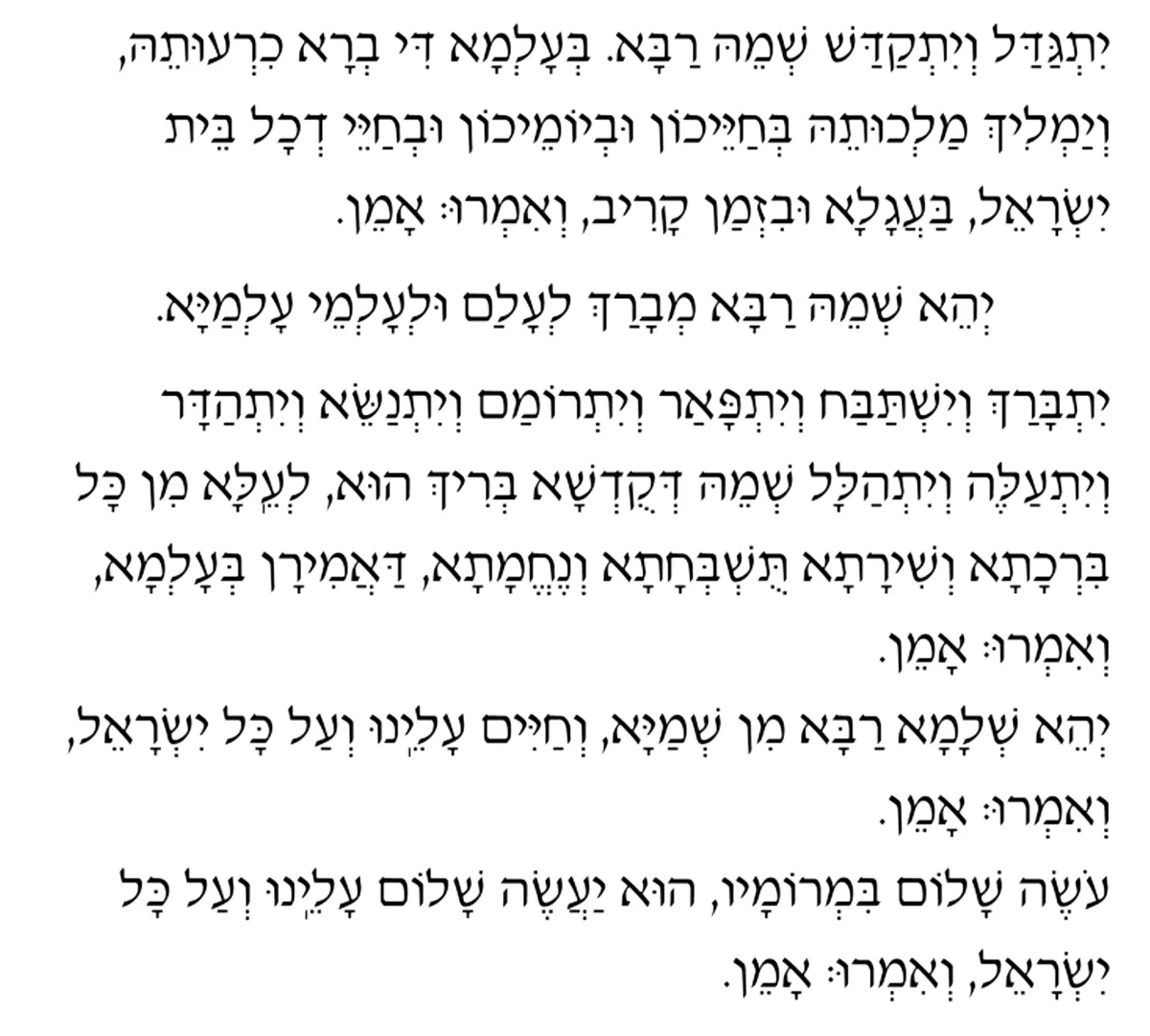The structure of the mourners’ Kaddish is a call and response. In the perfect setting, a Minyan(quorum of ten) is needed to recite the prayer. Chevrah Lomdei Mishnah offers mourner’s kaddish online as this recital cannot be done alone. This is one of the few prayers in the liturgy where the person leading the prayer talks to the people in the room instead of God. The rest of the people respond to the recital. The Kaddish cannot be said without a Minyan, as it is a public declaration of God’s holiness. If there is no Minyan, then it is not a Kaddish prayer. The big question therefore is, how should you go about the Mourner’s Kaddish if there are no minyans?
During the Covid-19 pandemic and other similar circumstances, social restrictions made it difficult to come together for Kaddish prayers. The irony of this situation is that it is a lot more important to recite Kaddish prayers when people are sick and dying. For the Jewish community, though necessary, social restrictions come in the way of communal rituals like Shiva as they cannot gather together and pray. Rabbis have recently decided that Kaddish can be said with a minyan over the internet. Just like other sectors, adjustments are inevitable after the Covid-19 pandemic. This article will not tell you what the law is. Instead, it will show you other ways to look at the Mourner’s Kaddish that might be helpful.
The Origin of The Kaddish Prayer
Kaddish used to be a prayer that was said when a student completed a course. Over time, it became a prayer for sad people. In the story, Rabbi Akiva tries to help a dead man’s soul feel better. The man was a sinner in his lifetime. On Yom Kippur, the man had sex with a woman engaged to marry someone else. He got a fair punishment.
On the other hand, Rabbi Akiva is eager to help him. He finds the man’s son, who was shunned by the community and starts teaching him the Torah from the beginning. The man’s pain ends when his son can lead the congregation in prayer, read the Torah aloud, and show them how to say Kaddish. Kaddish is not a mysterious phrase that a child repeats over and over. It is the end of a Jewish person’s life of studying the Torah, praying, and keeping the Sabbath. The real message of the Kaddish is to live a life that means something. “If a person has a son who works in Torah, it’s as if that person has not died,” said R. Shimon ben Yohai. When asked about a boy who would not say Kaddish for his dead father around the turn of the 20th century, Rabbi Tannenbaumsaid that the whole Kaddish has been misunderstood.
A Special Way to Honor a Parent
Tradition in Judaism says that a person should do more than just Kaddish for the departed person. In a moving speech, Rabbi Shlomo Ganzfreid said, “The best way to remember someone who has died is to do something good in their name.” Even though praying for the dead and saying Kaddish is good for their souls, it’s not the most important thing. Instead, what matters most is that the children do good things to honor their ancestors. A person should also teach his children to do an obligation, and if they do it, that is thought to be more important than saying the Kaddish. Some Jewish people say that Kaddish is important, but it’s not the only way to remember the dead. In this situation, doing a good deed that was important to the person who died can be “even more worthy than the kaddish.”
The Prayer That Replaces Kaddish
Last but not least, there is a long tradition that when there is not a minyan, prayers that need a minyan, like Kaddish, are said from different texts. When saying the Kaddish or a substitute for it, it is important to know what we are asking for by looking at the texts we use. During the 1300s in Germany, R. Yehudah Hasid, a leader of the Hasidei Ashkenaz movement, was the first person to suggest changing the Kaddish text. What do these verses mean to you? Instead of praises, these prayers show how much the worshiper wants a new world where God is honored and respected. The person praying asks God to show them how great God is, which may be the most amazing thing about God. People don’t live in a world where God is great because they have lost things and are sad. When people pray these verses, they say that they hope things will get better in the future.

